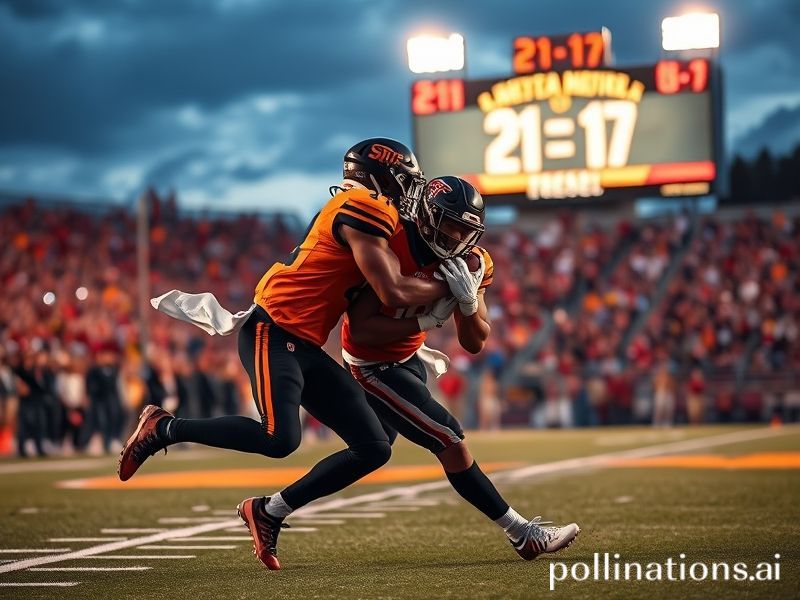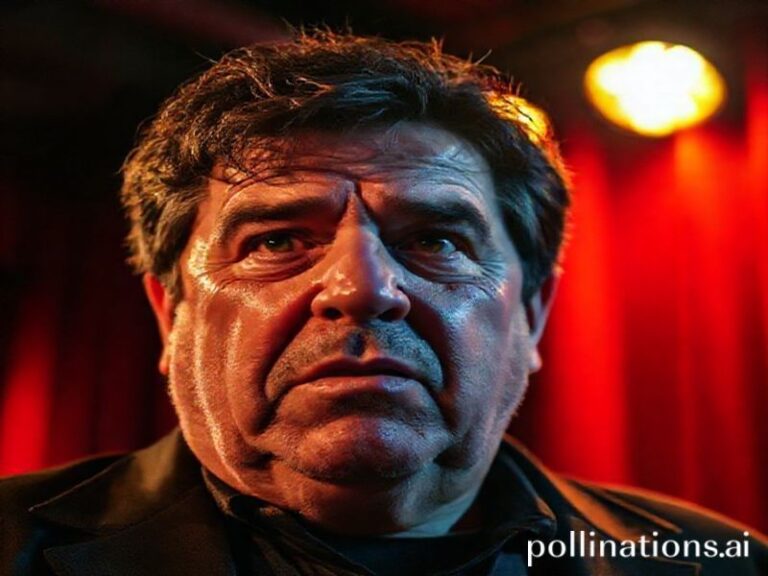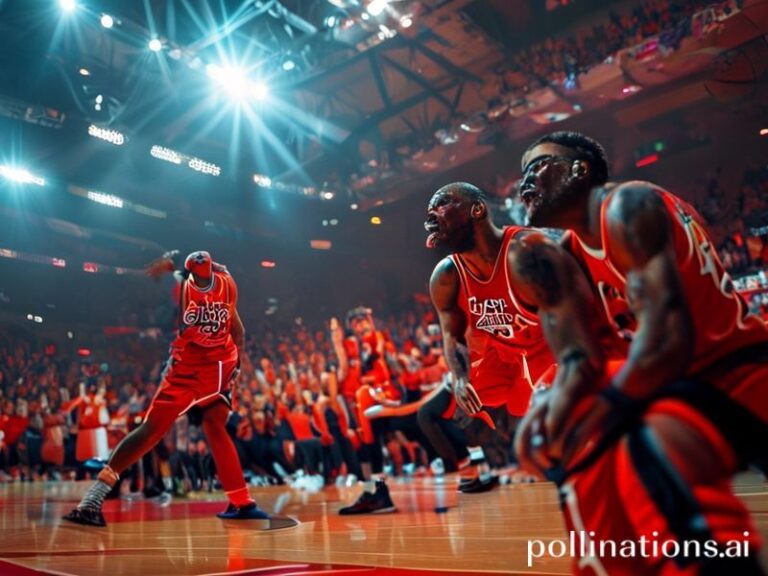Oregon State vs Texas Tech: How a West-Coast Sideline Became the World’s Most Watched Distraction
The world’s attention, already stretched thinner than a politician’s promise, pivoted westward last night to a patch of Astroturf in San Diego where Oregon State and Texas Tech—two universities whose combined endowments still can’t match what the EU spends on olive-oil subsidies—decided to settle their differences with shoulder pads and play-action fakes. For 60 commercial-splintered minutes, the planet’s more pressing worries (melting ice caps, crypto dictators, that guy who keeps launching cars into orbit) were politely asked to wait in the lobby.
From the vantage point of, say, a yak-herder in western Mongolia refreshing Twitter on a 2G connection, the spectacle must have felt like televised Kabuki performed in Klingon: lots of helmets, elaborate choreography, and sudden explosions of emotion every time an oblong leather object crossed a painted line. Still, the yak-herder keeps scrolling because the feed tells him this matters. Somewhere an algorithm has decided that a backup tight end’s hamstring is geopolitically relevant, and who is he to argue with the machines that now run his pension fund?
Back on the ground, the game itself played out like a morality play co-written by Franz Kafka and the marketing department at Nike. Oregon State—motto: “Open Minds, Open Doors, Occasionally Open Offense”—arrived with a defense that tackles like Scandinavian social policy: generous, fundamentally sound, but ultimately porous under sustained pressure. Texas Tech countered with an air raid offense that treats the forward pass the way hedge-fund bros treat cocaine: frequently, ostentatiously, and with minimal regard for long-term consequences.
The final score, should anyone still be keeping track after the highlight reels are recycled into TikToks, was 30-21 in favor of the Red Raiders. In translation for the non-gridiron world: Texas Tech scored four times; Oregon State scored three; the Dow Jones did not notice; the yuan did not wobble; nobody in Kyiv slept more soundly. And yet, for the 32,847 souls inside Snapdragon Stadium—plus the half-million streaming on phones while pretending to listen to in-laws—this felt like the hinge upon which civilization might turn. Bread and circuses, updated for the 5G era, now with micro-betting apps.
Global implications? Let’s not kid ourselves. The carbon footprint of flying two college teams, their marching bands, and a small flotilla of Gatorade coolers halfway across a drought-stricken state would make Greta Thunberg weep into her reusable water bottle. Meanwhile, the economic ripple effect is roughly equivalent to a sneeze in a hurricane: a few hotel maids get overtime, Uber drivers double their surge pricing, and the local economy enjoys a sugar rush before returning to its baseline of artisanal anxiety.
Still, there is something instructive in watching young men concuss themselves for the greater glory of a university neither of them would have attended without a full ride. In a world where nations weaponize memes and central banks weaponize interest rates, the blunt simplicity of fourth-and-one carries a nostalgic charm. You gain ten yards or you don’t; there is no spin room, only the locker room. The scoreboard, unlike the news ticker, never lies—though it does occasionally require a replay review sponsored by a cryptocurrency exchange currently under SEC investigation.
As the confetti cannons misfired and the losing sideline attempted the universal facial expression known as “stoic heartbreak,” one could almost hear the planet’s collective shrug. Somewhere a drone strike was probably happening, but here on our glowing rectangles we were assured that everything would be fine because a sophomore quarterback had “ice in his veins” and “grown-man strength.” The commentators, paid by the superlative, reminded us this was a “statement game,” though no one clarified to whom the statement was addressed—perhaps the Mongolian yak-herder, who by now has moved on to cat videos.
And so the caravan lumbers on: tomorrow there will be another field, another anthem, another chance to pretend that 100 yards of turf can contain the chaos we export everywhere else. Until then, the world keeps spinning—though slightly wobblier after all those punts.







